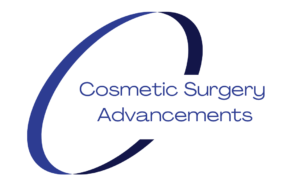Breast Implant Associated Anaplastic Large Cell Lymphoma, or BIA-ALCL has been diagnosed in 1363 people across 48 countries as of April 2023 with 59 fatalities recorded to date. In one of the largest data sets globally compiled by the Food and Drug Administration (FDA) 84% of recorded BIA-ALCL cases were connected to BIOCELL implants, made by Allergan. This potential risk has led to a number of compensation claims against Allergan in the United States.
Allergan Implants and BIA-ALCL
BIA-ALCL is a rare but potentially serious cancer of the lymphatic system associated with specific types of breast implants. It can occur in both saline and silicone filled implants with textured shells. The FDA stated that it had identified data that Allergan textured breast implants were more likely to cause BIA-ALCL when compared to other manufacturers of textured implants. Following this request from the FDA on the 24th of July 2019, Allergan announced a global recall for BIOCELL® textured breast implants. Smooth Allergan breast implants were not included in the recall because the FDA has not connected them to cancer.
2023 Important Legal Developments in Allergan Compensation Claims
There are no bellwether trials or settlement negotiations planned as of July 2023 and all pending cases are still undergoing discovery.
10th July, 2023 – Out of the 1,194 claims filed by plaintiffs, 1,140 Allergan Biocell Textured Breast Implant lawsuits continued to be pending in federal court in New Jersey, US.
May 2023 – The deadline for putative class representatives’ depositions has been scheduled for September 18, 2023, by Special Master Joseph A. Dickson. The federal court in New Jersey has 1,129 cases pending.
This is an active lawsuit – to get your free case review to find out if you qualify for an Allergan Breast Implant Lawsuit complete this form
BIA-ALCL: What’s the Risk?
Depending on the implant type, the texture of the implant shells varies, from 1 (smooth or “nano” textured) to 4 (highly or “macro” textured). According to epidemiological studies, implants with a lesser texture-to-surface area ratio are associated with a lower probability of causing BIA-ALCL. BIA-ALCL is typically discovered a median of 8 to 10 years after breast augmentation with implants. In most cases a localized form of BIA-ALCL means the cancer cells are confined to the scar capsule surrounding the implant. This is resolved by explantation of the implants in conjunction with total capsulectomy. Also referred to as En Bloc capsulectomy, this is the treatment for BIA-ALCL diagnosed cases.
In rarer cases, generally if BIA-ALCL is not diagnosed early the cancer cells can infiltrate the lymphatic system. This is a potentially life-threatening condition, however, early treatment is effective in most cases. En bloc capsulectomy must be combined with a systemic treatment (such as chemotherapy and radiotherapy) in these cases.
The 2022 BIA-ALCL World Consensus Conference practice guideline updates indicate that BIA-ALCL is now regarded as a “uncommon” or “emerging” disorder instead of a “rare” development.
There is just one instance of BIA- ALCL in a patient with smooth implants under the category of implant surface, and no information is available about the patient’s history with other implants. It should be noted that the data is based on medical device reports (MDR), which only provide partial details about the patient’s prior implant history. As a result, the figures could vary as additional information is acquired about previously reported cases. To date there have been no reported fatalities linked to tissue expanders, also known as expandable implants.
Monitoring BIA-ALCL
As a woman with macro textured BIOCELL® Allergan implants I understand how concerning the risk of developing BIA-ALCL is and advise anyone who has breast implants to follow the guidance below.
- Retain all information about your breast implants or tissue expanders, including the manufacturer, model, date of surgery, and any subsequent procedures to remove or replace your implants
- Check your own breasts and underarms each month for any unusual changes
- Consult your plastic surgeon or health care provider if you experience any unexpected breast changes or if you develop sudden weight loss, a fever, or night sweats
Sources
Allergan Breast Implant Lawsuits Drugwatch (Published 2023)
Anaplastic large cell lymphoma in people with breast implants – BMJ 2023;382:e073834: (Published 11th July 2023)
Medical Device Reports of Breast Implant-Associated Anaplastic Large Cell Lymphoma – FDA (Published 8th April 2022

